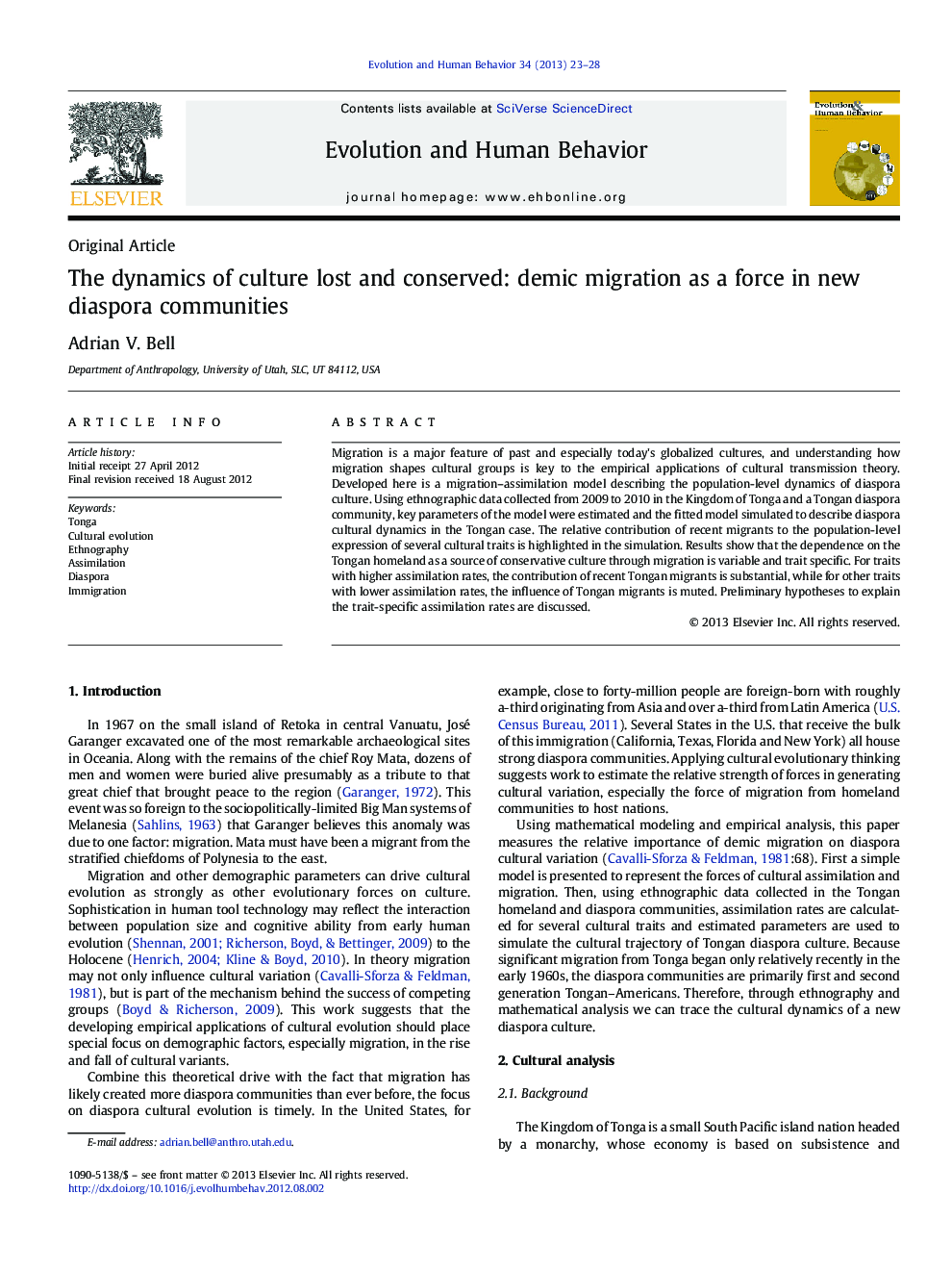| Article ID | Journal | Published Year | Pages | File Type |
|---|---|---|---|---|
| 943351 | Evolution and Human Behavior | 2013 | 6 Pages |
Migration is a major feature of past and especially today's globalized cultures, and understanding how migration shapes cultural groups is key to the empirical applications of cultural transmission theory. Developed here is a migration–assimilation model describing the population-level dynamics of diaspora culture. Using ethnographic data collected from 2009 to 2010 in the Kingdom of Tonga and a Tongan diaspora community, key parameters of the model were estimated and the fitted model simulated to describe diaspora cultural dynamics in the Tongan case. The relative contribution of recent migrants to the population-level expression of several cultural traits is highlighted in the simulation. Results show that the dependence on the Tongan homeland as a source of conservative culture through migration is variable and trait specific. For traits with higher assimilation rates, the contribution of recent Tongan migrants is substantial, while for other traits with lower assimilation rates, the influence of Tongan migrants is muted. Preliminary hypotheses to explain the trait-specific assimilation rates are discussed.
